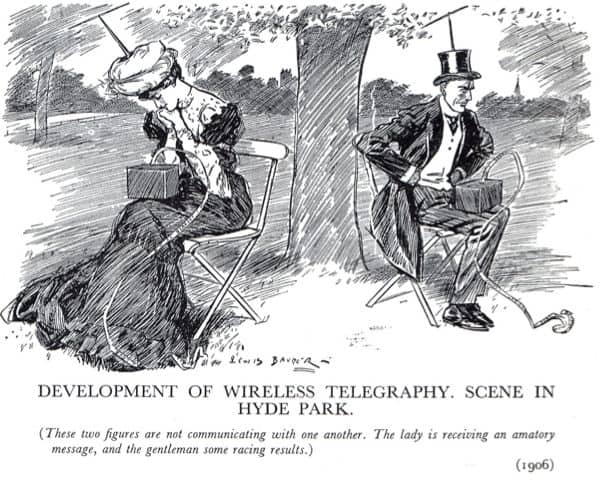
When I was growing up, we went to church because we were hurting. I would sit on the hard pew in silence. As the worship music played, I would look up at my mother. Her eyes would be closed in prayer, her face etched with grief. Life was hard then. My father wasn’t in the picture, and she was lonely and overwhelmed trying to raise my brother and me. Worship services were a place of solace. They were a place to petition God for some change. We went to church to open our hearts and lift up our pain to God.
But sometimes churches don’t know how to handle pain.
One week, a kid in my Sunday school class made fun of me because my mom “slept in church.” He didn’t see the tears welling up at the corners of her eyes. He didn’t see the way she clutched her hands in prayer. He just saw someone who wasn’t doing what everyone else was.
Sometimes church can become a place that speaks so highly of hope, healing, reconciliation and redemption that it begins to neglect life at its darkest and loneliest. And sometimes life is full of darkness and loneliness. Things don’t go as planned. Expectations are disappointed. Relationships become broken. People let us down.
It’s during times like these that I am grateful for the stories in the Bible. These stories aren’t trying to make everyone happy. They’re not trying to fit nicely into a sermon. The stories in the Bible are messy and complex, embracing the moments of agony and pain that life brings.
Did you know that over 40 percent of the psalms are composed of laments? David spends grand portions of his life in doubt and fear—running from Saul, enemies and even his own son. But traditional and modern worship rarely embrace sorrow and shadow like David did. Ever read Ecclesiastes? The writer grapples with the difficulties of coming to terms with mortality, at several points declaring, “Everything is meaningless!” Job, too, suffers with death, poverty, disease, loss and the grand question “Why?”
The Bible has a shadow side.
But even when we’re not specifically told the emotions of biblical characters, it’s easy to imagine what it might have felt like to be them. We experience the same emotions they did—crushed expectations, loss, disappointment and the agony of wondering why God would let this happen to us at all.
Is it any wonder that Noah’s first project after exiting the ark was to make wine and get drunk? He had witnessed the near extinction of humanity! Or what did Rahab feel when she betrayed her people for the survival of her family? She helped the Israelites, but can you imagine the psychological toll this would have taken as she watched the slaughter of her neighbors? Or what of Judas? The Scriptures tell us that he was “seized with remorse” over his betrayal (Matthew 27:3). Here was a man who was loved by Jesus, who learned by His side for years and made a huge judgement of error. Can you imagine the feelings of guilt and grief that tormented him the last hours of his life? These people had emotions and feelings and dealt with incredible loss. They tell the shadow stories of Scripture.
You might know of Jacob—the cunning protagonist who takes his brother’s inheritance, works for over a decade to marry his wife, and wrestles “a man” (Genesis 32:24), earning him the name “Israel.” This would become the namesake for God’s chosen people. Jacob is a hero of the faith. But the church often puts so much emphasis on Jacob’s admirable qualities that we don’t see the shadow side of his story. Here is a teenager who tricks his brother (Genesis 27), lies to his father, has to run for his life and ends up marrying a woman he doesn’t love.
Even after he seems to face his past and his flaws, Jacob ends up lying to his brother and travels to a land where then things get even messier. This less popular part of the story continues with Jacob’s daughter being raped and his sons retaliating with deception and murder, inciting the wrath of the locals and forcing their family to flee again. Years pass. His beloved wife dies in childbirth. He grows older. And then his favorite son, Joseph, goes missing, leaving nothing but a bloody coat.
We, as the readers, leave Jacob to travel with a very alive Joseph, our new protagonist who was sold in slavery in Egypt. Jacob, our hero, has been replaced. He fades into the background of the narrative. We hardly even recognize this frail old man as the same strong-headed man who wrestled with God. He has lost much. And he does not know what we know—that his son is alive. God lets Jacob cope with the grief of losing those he loved the most. For 20 years, the biblical narrative follows Joseph as our aging hero sits in mourning and grief and doubt.
More likely than not, Jacob was asking the same question we ask ourselves today: Where has God gone?
And yet, eventually, Jacob is reconciled with his son. Eventually, there is hope and joy. But Jacob’s story is one full of pain, sorrow and loss. And we must pass through these parts of the story to fully appreciate the joy at the story’s end.
The Bible does not hide or turn from the darkest parts of life—it holds them closely. Although the church sometimes does not know what to do with these moments, our Scriptures embrace them fully.
When the time eventually comes for you to sit in church with your eyes closed and tears welling up, know that you are not alone. Jesus wept. And so have many, many others.





















